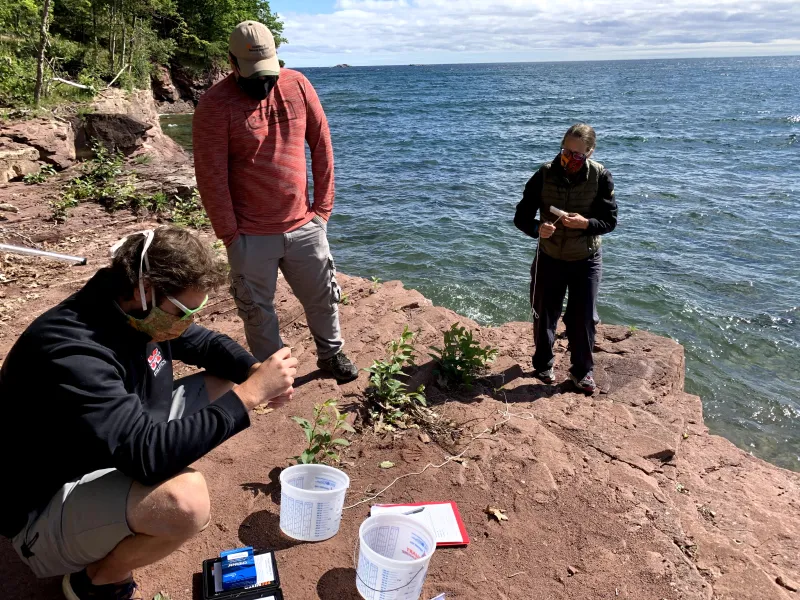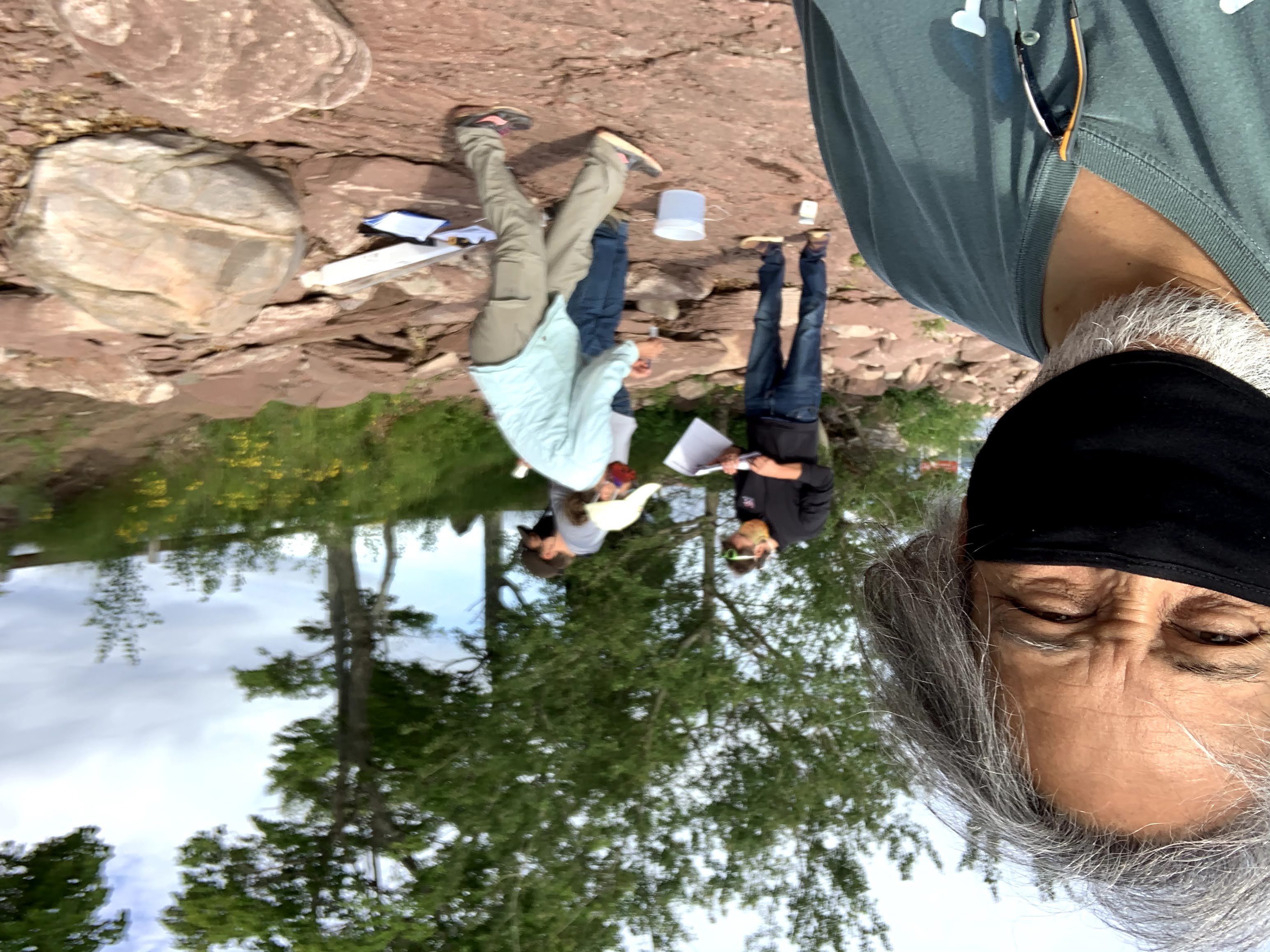Northern Michigan University Education Professor Mitchell Klett is one of five faculty from Great Lakes region universities who led a recent professional development workshop to help K-12 teachers effectively engage their students in researching the water quality of the Great Lakes as it relates to harmful algae blooms.
The workshop was taught in a hybrid model of local and virtual training. The field studies covered sites in Michigan's Upper and Lower Peninsulas, Ohio and New York.
Participating teachers were trained online in using Global Learning and Observations to Benefit the Environment (GLOBE) protocols related to water quality. They spent the week-long workshop conducting water quality observations of temperature, dissolved oxygen, transparency, pH, nitrates, phosphates and macroinvertebrates. Data was entered on the GLOBE website, an international and publically accessible platform.
“We know that educational opportunities for students should be learner-centered and focused on questions, problems and issues to be investigated,” said Klett. “Collecting, analyzing and sharing data, exploring models and examining natural phenomena help increase student interest and motivation toward achieving environmental stewardship.
“Students gain an understanding of basic watershed concepts, as well as the interaction between natural systems and social systems, highlighting the connection between human activity and environmental conditions.”
The National Oceanic and Atmospheric Administration (NOAA) funded the workshops through its Bay Watershed Education and Training (B-WET) Program.
Virtual sessions focused on understanding the data that was collected and comparing ground data with satellite data. Teachers also engaged with national and local speakers, including Tom Anthos of TriMedia Environmental & Engineering Services LLC and Matthew Zika of NOAA's National Weather Service Office, both located in Marquette.
When school starts, teachers will implement their experiences into their classrooms by conducting scientific inquiry projects with their students. In the spring, students will be given opportunities to present their research in several symposia.
For more information on GLOBE, visit https://www.globe.gov/about/overview. Learn more information about NMU's education programs here.


